The modern world runs on money: No matter one’s opinions of capitalism, in our reality, that is an unavoidable fact. Fiction, though—particularly speculative fiction like SF and fantasy—is perfect for exploration, imagination, and escapism, helping us set aside the drearier aspects of reality and envisioning other systems, other sorts of economies…
Contract Economy: Written in Red by Anne Bishop

Capitalism certainly plays a role in Anne Bishop’s The Others series—but only insofar as human civilization exists in the background. The terra indigene, sentient non-humans who take various elemental and shapeshifting forms, have only just begun to make direct purchases with currency at the time the books are set. The terra indigene have set out to understand humans better and build a better relationship with humanity, which very much exists on sufferance in the terra indigene territory.
Technically, terra indigene lease land to humans in exchange for manufactured goods. Human communities provide these luxuries on a recurring basis—for example, leaving boxes of supplies at the edges of terra indigene settlements. Humans pay for water rights, they pay for right-of-way access to the roads, they pay for the land they build their cities on—in perpetuity. The land belongs to the terra indigene, who accumulate wealth via contract because they have no other reason to permit humans onto land they control. As Frank Herbert notes in Dune, the ability to destroy something is the ability to control it absolutely. No matter what the “Humans First and Last” organizations believe, Bishop’s terra indigene are exponentially more powerful than the human governments and have demonstrated the ability to wipe out human civilization entirely.
They definitely have the ability to enforce their contracts—and other transactions are treated as little more than a curiosity.
Balanced Reciprocity: In an Absent Dream by Seanan McGuire
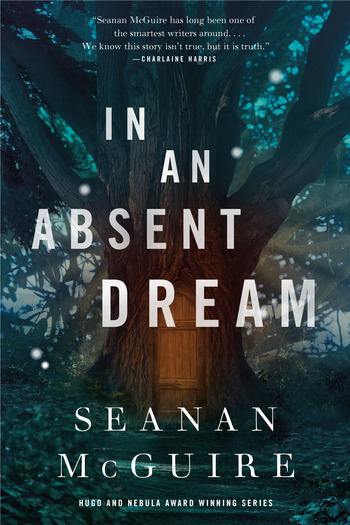
In Anne Bishop’s more widely known Black Jewels series (which also features an excellent example of tithing), there is an oft-repeated phrase, “Everything has a price.” A similar sentiment shows up in the Goblin Market of In an Absent Dream by Seanan McGuire—an economic system known as balanced reciprocity.
Though the Incan state controlled the economy on the macro level, on the interpersonal level, balanced reciprocity was key.1 A member of the community might ask for help plowing a field of potatoes and then, in a later season, be expected to pay back that favor by helping someone else shear their llama. The Quechua concepts of mit’a (mandatory public service—the Egyptians used something similar for public infrastructure projects) and minka (asking for help by promising something) were critical to the social stability of the Inca.
In an Absent Dream offers a much darker example of this system. It’s balanced reciprocity enforced by the magic of the Market itself. In the Goblin Market, it is unwise to ask for anything at all unless you can offer fair value, and if you cannot, well, then you go into debt. As in the Black Jewels series, costs can be tangible or intangible—or both. The Market is fair in its way, distinguishing between those who are deliberately cheating and someone working as hard as they can to settle a debt; it appears to deal more gently with those who cannot yet be expected to know all the nuances of its rules.
But it’s best to stay sharp and be careful of what you ask for… in the world of Goblin Market, the debt you incur slowly turns you into a bird.
Hunting & Herding Economy: The Borderland of Sol by Larry Niven
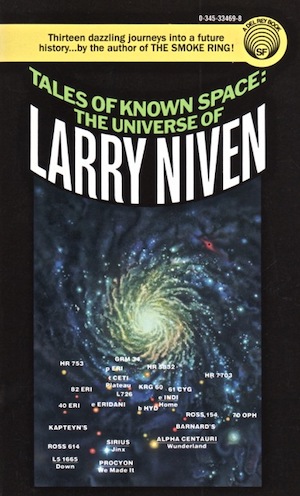
Animals can represent their own sort of economy. The ability to vastly increase the size of a pastoral herd, such as cattle or sheep or horses, has an enormous impact on a society’s economy—especially when you consider that pastoral economies are often less about coinage or currency and more concerned with herd sizes. Around 3300 BCE, the Yamnaya herders of the Pontic steppe began to increase their herd sizes, thanks to the invention of the wheel allowing for a mobile pastoral economy.2
In the early centuries of the first millennium CE, when high-value goods were still rare in cattle-keeping parts of Africa, being a clan chief had relatively little practical effect. But during the Nuer expansion, chiefs were able to use their position as community judges to build up their own herds and redistribute cattle to their followers.3 This economy, centered around control of cattle rather than currency or coinage, led to enormous social changes.
Most science fiction and fantasy books involving pastoral herders tend to depict a regular, coin-based economy, but that’s not always the case. The nightsheep herders of L. E. Modesitt’s Corean Chronicles must buy equipment for processing the nightsilk, plus barrels, guns, and other goods. They used money just as ranchers in the American West would have. The Shin’a’in of Mercedes Lackey’s Heralds of Valdemar series consider their horses as part of the family, but sales of culled horses to outsiders nonetheless represent a major source of wealth for the Clans. A “purely” pastoral economy is something different; a pastoral economy in the Bronze Age sense of the term uses the number of animals in one’s herd as the measure of wealth itself.
But what if the animals themselves are the ones engaging in economic activity? Larry Niven’s Known Space setting shows an example of just that in Borderland of Sol, which won the 1976 Hugo Award for best novelette.
Hearkening back to ancient traditions in which clan chiefs were entitled to half a hunter’s trophy in acknowledgment of their work as adjudicators of disputes in the clan, the sentient Bandersnatchi of the Jinx system allow themselves to be hunted by humans in exchange for specialized tools.
Barter Economy: Clean Sweep by Ilona Andrews
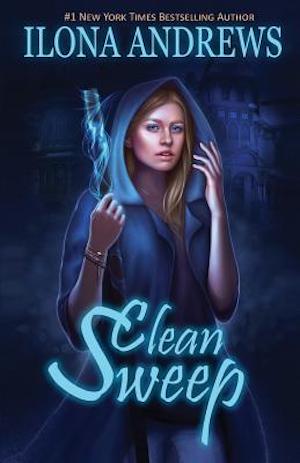
Speaking of specialized tools, Ilona Andrews’ Dina Demille relied on barter economy to get the specialty items she needed to defend her inn in Clean Sweep. She visits Baha-char, a grand bazaar that is a great crossroads like the Swahili Coast or Syria were in their heyday. It is a place where you can find anything you are looking for. The person she goes to, Nuan Cee, is a cut above a regular trader; he’s a powerful Merchant who deals in rare goods. Simple currency means nothing to someone like Nuan Cee—uniqueness and rarity are prized.
Dina manages to barter a jar of specialty honey from Yemen—worth about $250—for an exotic item she desperately needs to defend her inn. When her partner is concerned about the perceived value disparity—she never could have bought the thing she needed for $250!—Dina reassures him by pointing out that value is in the eye of the beholder, and that to Nuan Cee, the honey is worth far more than $250 because of the story she wove about it.
The thing about barter economies, though? Pre-money ones might be just as fictional as Baha-char. Adam Smith’s idea that primitive people would have bartered for goods before the invention of currency has been thoroughly debunked by anthropologists like David Graeber—evidence suggestions that barter economies came after the invention of money—similar to how Ilona Andrews’ popular Kate Daniels series uses ammunition in lieu of dollars after the U.S. federal government crumbles.
Contribution / Status Economy: Children of Time by Adrian Tchaikovsky
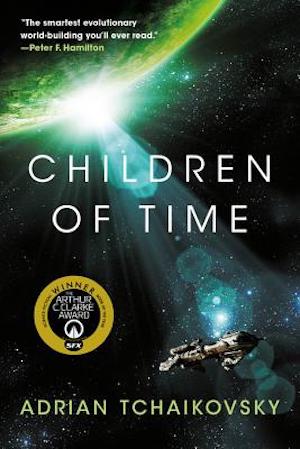
In the pre-Columbian era, the Inca were able to construct one of the greatest imperial states in human history without money or marketplaces. The state economy functioned via “supply on demand” and the concept of mit’a. The state might demand labor from a family, but they would give equal value in return. As mentioned above, a similar system was used by the Egyptians for their public infrastructure projects. For most of Egypt’s history, particularly during the Bronze Age, international trade was sponsored by the Pharaoh. There was no merchant class; Bronze Age rulers in the Levant gained status through a complex web of luxury gifts, diplomacy, and war.
In Children of Time by Adrian Tchaikovsky, female spiders function as the nobility—they are the warrior class, the priestesses, the scholars. Males are typically expected to follow one of two paths to earn their food: An industrious male might make himself useful performing maintenance or engage in the easier (but more dangerous) work of courtship and flattery. The young are provided for by the “state” until they are old enough to be useful, but then they must work to earn food, learning trades, and gaining specialties. The spider metropolises are run as a functional anarchy with social hierarchies determined by contribution. Favors and gifts are determined by power, gained through contribution to the whole, and females collect into peer groups of friends that essentially work together to pool their resources and status.
Of course, at the elite levels of any human society, status starts to matter more than money—but what makes the spiders of Children of Time so unique is that this philosophy was pervasive throughout the whole society—if it weren’t for the spiders (and the extreme sexual dimorphism) I might even consider it a utopia!
* * *
Have you come across any other unusual economic systems in science fiction or fantasy? Please consider yourself invited to share more examples in the comments.
Eleanor Konik studied philosophy and religion before graduating law school in 2011. These days, she teaches Ancient Civilizations and spends the bits of time left over writing stories that bring history—and magic—to life. You can find more articles about worldbuilding, ancient civilizations, and mythology at her website.
[1]'The Articulated Peasant: Household Economies In The Andes' by Enrique Mayer is a good starting point if you're curious about the role of agricultural laborers in Andean economies throughout history from an academic perspective.
[2]If this intrigues you, check out 'The Horse, the Wheel, and Language: How Bronze-Age Riders from the Eurasian Steppes Shaped the Modern World' by David W. Anthony.
[3]'The Civilizations of Africa: A History to 1800' by Christopher Ehret has a great overview of how different technological and social developments impacted African history.










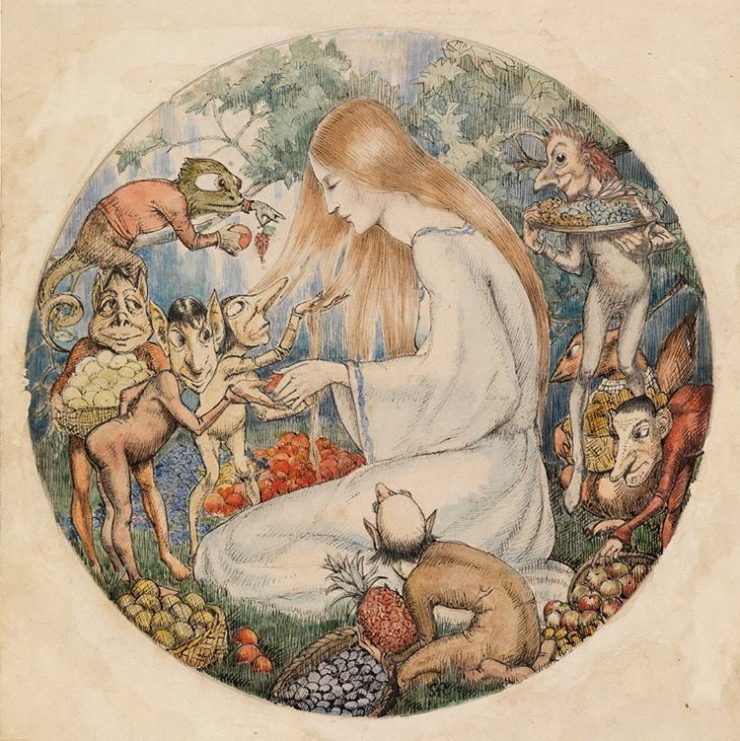
See also “And Then There Were None” by Eric Frank Russell (later incorporated into the novel “The Great Explosion”). An Earth ship searching for scattered interstellar colonies finds one settled by pacifist anarchists calling themselves “Gands” (after Gandhi), whose economy is based on a kind of honor-system of “obs” (obligations). Anyone desiring a good or service has an “ob” to supply a like-valued good or service in return. People who take without supplying are ultimately refused anything until they can fulfill their obs. The society is comprised of fairly small, nearly self-sufficient towns, which seems to enable it to work, since everybody can know everybody else, and know who can be trusted to fulfill obs. The typical Eric Frank Russell comedy comes when the Earth emissaries are driven nuts by their inability to find anyone in charge (since there aren’t any), and the inhabitants’ near-total indifference and incuriosity towards them.
The Weigher by Eric Vinicoff and Marcia Martin also uses an explicitly favor-based economy…with a local arbiter who ajudicates value disputes via Trial By Combat (they are a species of large humanoid wolf-aliens). Humanity really isn’t equipped to defend economic interactions via tooth & claw.
I can also highly recommend Bishop’s works for other than economic reasons. They’re one of the few modern Shifter series that have a novel take on the genre, and manage to do so without being thinly disguised soft-core porn. Not that there’s anything wrong with that, per se, but these really do stand apart from the field.
Basically everything by Ken McLeod has original and interesting economies and political systems and are really fun reads
The Craft series is an great example of this. The unit of currency, the thaum, is based on the amount of magical energy in a single human soul, and mega-corporations can achieve godlike power by amassing millions of thaums in their treasuries.
Surprised that I’m the first to mention Whuffie, the reputation currency in Corey Doctorow’s Down and Out in the Magic Kingdom. It’s a post-scarcity anarchy, but if you want to do a big project, for example, you need to trade on the reputation you’ve built up to get others to contribute resources.
When I was involved with our local LETS system (Local Exchange Trading System), I used to recommend “And Then There Were None” to new members to give them an idea of how the system worked.
I’ve always particularly despised the economy of Utilitopia in John Barnes’ A Million Open Doors. It’s a wicked creation.
@8: Completely agree.
Basic rule of thumb: be extremely cautious about entering bargains with supernatural beings. Fairies are rule lawyers. And don’t even think about trying to outwit a demon!
What is the “fair value” of a thing? A COVID vaccine, for example. Or an Ebola vaccine, for that matter.
Capitalism may be the current default, but the dragons of Jo Walton’s Tooth and Claw take the default to an uncomfortably literal extreme. They’re the living exemplars of that verse in the Book of Proverbs: “There are those whose teeth are swords, whose fangs are knives, to devour the poor from off the earth, the needy from among mankind.” Or dragon-kind.
I think Sanderson’s Cosmere books start to play with this idea a bit with introducing magic/Investiture (which manifests in different ways on different worlds) as something that can be commoditized. Warbreaker is the most obvious example as people can literally sell their internal ‘Breath’ (and some people hoard it), but even in the other books (especially as they begin to tie together) it’s clear that Somebody is trying to effectively find a way to bottle it up and sell it.
And of course there are the ‘Finn in the Wheel of TIme which will give either answers or wishes…for a price.
Interesting theme for an article, thanks! I just got the Anne Bishop from the library. I haven’t read anything of hers before, and her stuff looks interesting.
@14 Anne Bishop is definitely interesting! Polarizing, but interesting for sure. I hope you enjoy it :)
I, too, just added a bunch of books to my TBR pile!
@3, gracious, which shifter books have you been reading? I enjoy Anne Bishop’s series a lot (though I hope she comes up with a new theme if she writes any more, maybe a closer look at the Elders) but I certainly wouldn’t class my other favorites as soft porn. (I also enjoy Patricia Briggs, Ilona Andrews’ “Magic” series and Carrie Vaughn’s Kitty the Werewolf. None of them are excessively oversexed.) Maria Vale, who’s writing a new romance series, The Legend of all Wolves, is new on my keeper shelf but I don’t remember her books being too sexy. I actually would like a little more romance from Bishop’s The Others, which I’m currently rereading.
Eleanor, why do you describe Anne Bishop’s Others as polarizing? I’ve only read The Others, but I have heard more complaints about her earlier books
@16 If you look at the comments (particularly #8) on the “How Not to Build an Alternate America: Anne Bishop’s Written in Red” Tor article from 2013, I think it’s a pretty good roundup of the sorts of reasons people do and don’t enjoy her work. It would probably be beyond the scope of a comment for me to go into all of the reasons people do or don’t think her books are acceptable but I think a lot of it depends on the way you look at the world. For example, is The Others great because it shows a world in which European colonizers get their comeuppance and have their powers strictly limited by individuals whose power far outstrips their own, or awful because it shows a world in which Native Americans never were? Is The Others great because it provides representation for people who engage in ‘cutting’ and the struggles involved in dealing with all that entails, including the struggle to stop… or is it awful because it can be interpreted to somehow “encourage” cutting because it’s described as euphoric and leads to prophecy?
There’s a lot in Anne Bishop’s books that sort of treads that line, from a political/cultural perspective, for example… is it awesome that the men of the Black Jewels trilogy are so big on consent and solicitous and how it’s a matriarchal society, or horrible how carefully they need to be “managed” and how it’s “acceptable” for them to just go berserk and kill people who “push their buttons.” ?
Personally I have complicated feelings on the topic but no good answers.
Even currency based on coins or physical items of value, such as gold or silver, is a construct – IMHO – and I am still waiting for the future we were promised that is based on all physical needs being provided for by the society, as being what would be in the good and best interest of the society. Beings would engage in activities because it brought them meaning, purpose, joy, satisfaction and the like – not because of something as mundane as having to ‘earn a living.’ I lost my interest in reading or viewing for pleasure about any economy not set in actual history that has elements of profit or mercenary aspects ages ago.
The late Iain M. Banks Culture didn’t have one, which would be my preference.
Alas, my political & economic views are held too passionately for me to deal with a portrayal of a system that I vehemently disapprove of unless that portrayal was a critique. I love Charles Stross, but I really struggled with the Merchant Princes books. I know. My loss. But there we are.
I am a writer of science fiction as well. In my books, the heroes have developed, or are creating societies without arbitrary violent hierarchies, a.k.a. governments. The Mars Frontier & New Settlements with non-government lunar compounds, along with the breakaway colony planets of Magellan and Bering — far from the Earth-Mars-Sol system participate in a voluntary, anarchist, agorist setting. Government is the penultimate monopoly power that severely distorts nearly every market there is in favor of a small set of cronies. Monopolies cannot exist without the brute force of government behind them. We’re living in a society where the most important aspects of the supposedly Free Market create and encourage this 800 lb. gorilla throwing its weight around. Areas would include banking, security, arbitration, real estate, food production, medicine, education — the list is endless. There is nothing untouched by the Leviathan. The revolving door between government and her supporters/masters/dupes produces the antagonists in my novels.
Alternative courts, cash, security, insurance, banking (where Ouija boards and astrologers do not determine the value of money), as well as management of wildlife and other public concerns are available through private parties in voluntary exchange and by the enforcement of property rights — which includes self-ownership. Governments are the worst stewards of the environment there are (see Hanford, Rocky Flats, National Forests, wildlife management, or any military base.) In my novels, the entities that cannot or will not do what they purport to do go out of business. Anyone can prosecute them as well — and make it stick. Governments can never go out of business since they grant themselves endless rights to everyone else’s money and property. They give themselves sovereign immunity, qualified immunity, eminent domain, conscription in their wars, and prevent peaceful people from living their lives according to the nonaggression principle. If governments had to go around hat-in-hand asking for contributions to wage the next war, how many of us would laugh in their faces? I bring out the alternatives in the thoughts, actions, discussions, and trials in my books, though in an entertaining, fast-paced, humorous, and hopefully thought-provoking manner.
It should be noted that in the TOS (why here, I don’t know) for Starlink, Elon Musk declared that in colonies to be developed by SpaceX, no Earth or other government’s laws would hold sway. If one needs examples, we hearken back to communities who have governed themselves in a voluntary way, i.e. mining camps, wagon trains, intentional communities, and even the American colonies up until the War of Independence (read Murray Rothbard’s Conceived in Liberty).– then Washington, Alexander Hamilton, and other founders sold everyone out by introducing the British Banking monopoly/mercantilist model to America.
Michael J. Scharen
michaelsbookcorner.com
Profile page goodreads.com
Fight for the Future